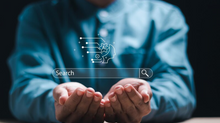The Impact of Generative AI on Workforce and Skills: Navigating the Transition

In 2023, the landscape of technology and work underwent a seismic shift with the widespread adoption of Generative AI (GenAI), most notably in the form of ChatGPT. As we move forward, organizations face the urgent task of revisiting and adapting their workforce strategies to thrive in this new era.
Why This Transition Is Critical?
The push towards embracing GenAI technologies across industries has underscored the necessity for a strategic overhaul of workforce capabilities. This need arises from several pivotal factors that collectively signal a transformative phase in workplace dynamics and skill requirements.
(1) Direct Access to GenAI Tools
The democratization of GenAI tools signifies a paradigm shift in how technology is accessed and utilized in the workplace. Unlike traditional software that might require specialized training or access through IT department, GenAI tools are readily available to employees at all levels. This accessibility mandates a universal baseline of understanding and proficiency with these tools, making it imperative for employees to adapt quickly to leverage these technologies effectively in their daily operations.
(2) Emergence of New Skills
Technical Proficiency with AI Tools: Mastery of GenAI tools is becoming a cornerstone of modern job roles. This encompasses not just the ability to use these tools but also to understand their capabilities, limitations, and best practices for integration into existing workflows.
Critical Thinking and Ethical Judgment: As AI technologies generate outputs that can influence decision-making and strategies, the ability to critically assess the validity, biases, and ethical implications of these outputs is crucial. Employees must navigate the complexities of AI advice with discernment and ethical foresight.
Creativity and Strategic Innovation: The capacity for creative thinking and strategic innovation alongside AI tools is highly valued. AI can process and analyze data at unprecedented scales, but human creativity is essential for posing the right questions, envisioning future directions, and applying insights in novel and impactful ways.
(3) Optimizing Workforce Transition
An in-depth understanding of the current workforce's skills and capabilities is critical. Identifying skill gaps and potential areas for development enables organizations to craft strategic plans for a smooth transition. This not only involves upskilling and reskilling but also reassessing job roles and responsibilities in light of AI integration.
(4) Dispelling AI Fears
A key challenge lies in overcoming apprehensions about AI. Concerns about job displacement, overreliance on technology, or ethical missteps can hinder adoption and integration efforts. Offering clear, transparent communication about how AI will be used, the benefits it brings, and the safeguards in place is essential for building trust and confidence among employees. Creating an environment that views AI as a tool for enhancement rather than replacement can facilitate a more receptive and adaptive workforce.
How Organizations Can Embark on The Journey of a Seamless Transition?
As organizations chart their course toward integrating GenAI into their operations, there are several key initiatives that can facilitate a smooth transition. These initiatives not only address the immediate need for technological adaptation but also ensure long-term resilience and growth in the GenAI era.
Here's how organizations can embark on this transformative journey:
(1) Conduct a Comprehensive Skill Gap Analysis
This initiative lays the foundation for targeted development by pinpointing the specific skills and knowledge gaps within your workforce. Understanding where your organization stands in terms of GenAI readiness allows for a focused approach to upskilling and reskilling, ensuring that your team is equipped with the necessary competencies to thrive in a GenAI-enhanced work environment.
(2) Develop Tailored Learning Programs
Customized learning programs are pivotal in bridging the identified skill gaps. By designing education tracks that cater to the unique needs of your workforce, from technical proficiency with AI tools to critical thinking and ethical judgment, you're not only enhancing individual capabilities but also fortifying the organization's collective intelligence and adaptability. These programs signal a commitment to employee growth, fostering a motivated and future-ready team.
(3) Cultivate a Culture of Continuous Learning
Establishing an environment that champions continuous learning and innovation is critical in the fast-evolving landscape of GenAI. This initiative involves more than just providing learning resources; it's about creating a supportive ecosystem where curiosity is encouraged, and knowledge sharing is the norm. Such a culture not only accelerates the adoption of GenAI but also ensures that your organization remains agile and responsive to future technological shifts.
4. Foster Open Communication and Change Management
Transparent communication and effective change management are the linchpins of successful GenAI integration. By openly discussing the purpose, benefits, and impact of GenAI adoption, organizations can dispel fears and build trust among employees. This initiative ensures that the transition is not just technologically smooth but also psychologically reassuring, paving the way for a workforce that is both competent and confident in leveraging GenAI to its full potential.
Together, these initiatives form a comprehensive strategy for organizations looking to harness the power of GenAI. By focusing on skill development, continuous learning, and open communication, businesses can not only navigate the challenges of GenAI integration but also unlock new avenues for innovation and growth.
Final Thoughts
The integration of GenAI into the workforce represents a profound opportunity for organizations to innovate and grow. By adopting a strategic and thoughtful approach to workforce development and change management, organizations can navigate this transition effectively. While the challenges are significant, the potential rewards for those prepared to invest in their workforce are immense. Partnering with an experienced consultant can offer valuable insights and guidance, ensuring a smooth and successful integration of GenAI technologies. Embrace the future with optimism, preparedness, and a commitment to continuous learning and adaptation.
If you are interested in embarking on journey with an experienced AI and Workforce Transformation expert, please contact us at info@bioquestsg.com
























Comments